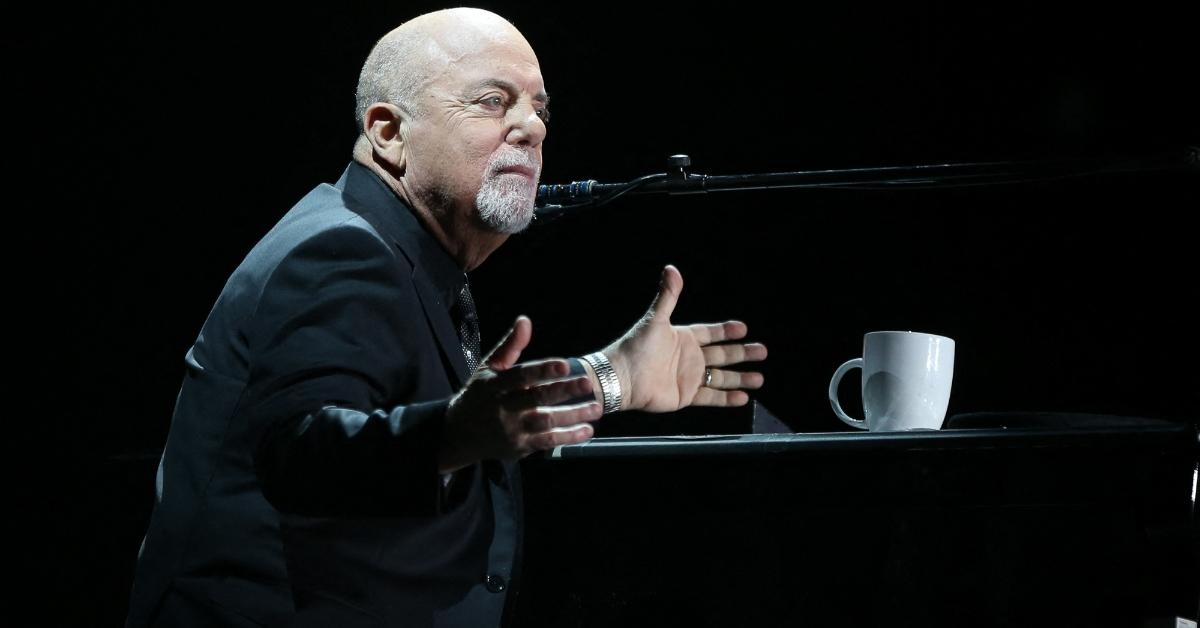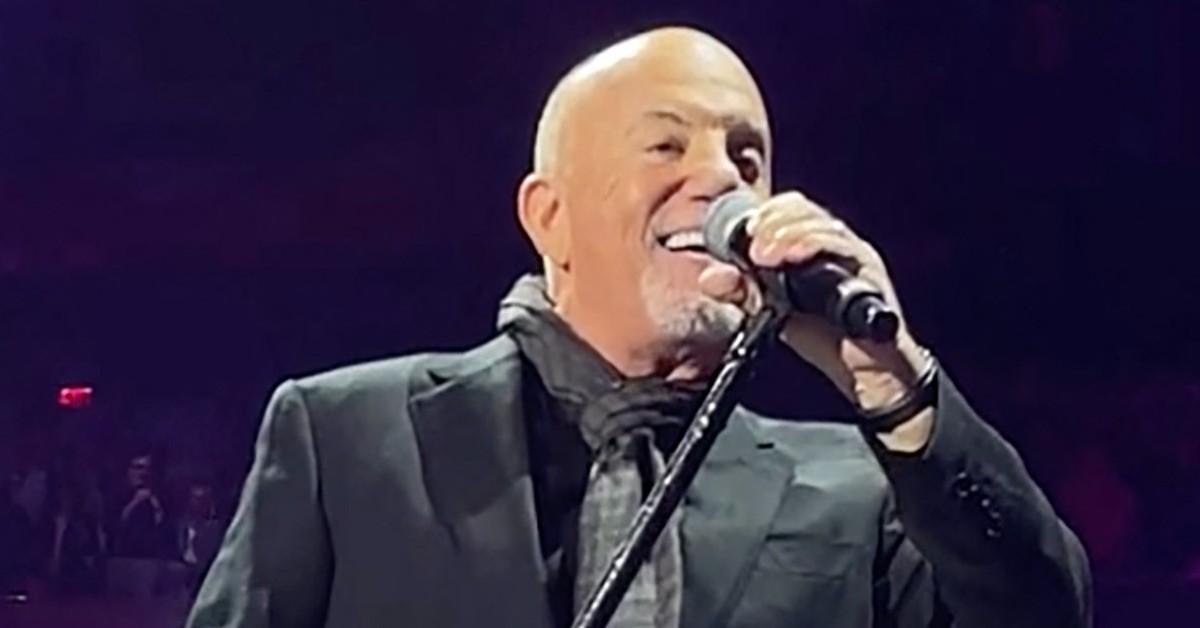"I'm Sincerely Sorry to Disappoint Our Audience" — Why Did Billy Joel Cancel His 2025 Tour?
Billy Joel thanked his fans for understanding and says he looks forward to the day he can perform again.
Updated May 27 2025, 9:20 a.m. ET

Singer Billy Joel has spent decades entertaining millions with his legendary music. Even legends, however, must listen to their bodies. In March 2025, fans were disappointed to learn that the singer postponed several dates on his 2025 tour. The reason? His health.
Still touring in his seventies, Billy Joel’s health is an understandable topic of concern among his fans. Surprisingly, the singer didn’t seem to let age stop him from banging out incredible performances.
Unfortunately, something changed early in 2025 when he was forced to pause his tour dates. In a statement, Billy made sure his fans knew he didn’t like postponing tour dates. However, he had to put his health first. Two months later Billy had to cancel the entire tour. Here's what we know.

Billy Joel's health is affected by a diagnosis of normal pressure hydrocephalus.
At 75 years old, Billy maintains an impressive stamina on stage, performing high-energy sets filled with classics like “Piano Man” and “Uptown Girl." Unfortunately, Billy reportedly had a “medical condition” that was weighing on him. As a result, he was forced to reschedule a few of his tour dates in 2025.
On March 11, 2025, Billy’s social media manager took to his Instagram to reveal a “medical condition” resulted in the need to reschedule some of Billy’s upcoming concert dates.
The post went on to explain, “The current tour will be postponed for four months to allow him to recover from recent surgery and to undergo physical therapy under the supervision of his doctors.” He was expected to make a full recovery, but that might be a minute.
Two months after the initial announcement, the singer/songwriter shared he had to cancel the entire tour. In an Instagram post from May 23, 2025, he revealed a recent diagnosis of normal pressure hydrocephalus (NPH). Per the Cleveland Clinic, NPH is a "condition that happens when cerebrospinal fluid builds up inside your skull and presses on your brain."
His condition was "exacerbated by recent performances, leading to problems with hearing, vision, and balance." While he is recovering, medical professionals advised Billy to stop performing. "I'm sincerely sorry to disappoint our audience," he said while thanking fans for understanding.
With just shy of one million followers on Instagram, Billy’s post was met with nothing but love and understanding from his fans. Most encouraged the singer to take all the time he needed to heal before returning to the tour. There were dozens of varying words of encouragement and well wishes. Overall, no one seemed to be interested in giving the singer grief for his decision.
How has Billy Joel managed his health over the years?
Billy has been through a lot — not just physically, but emotionally, too. Decades of performing have taken a toll on his body, leading to a double hip replacement in 2010. According to Rolling Stone, the singer had a bilateral hip replacement because of a congenital disorder.
His ex-wife, Christie Brinkley, took care of him during his recovery. She reportedly told media outlets he had both hips done at the same time because he knew himself well enough to know he wouldn’t want to go back to get his other hip fixed if he did them one at a time.

While his physical health has had its ups and downs, it is his struggles with his mental health that have been the most difficult chapters of his life. Back in 1970, after a series of career setbacks and personal losses, Billy hit rock bottom.
In a moment of deep despair, he attempted to take his own life by drinking furniture polish — a decision he later reflected on with dark humor, saying, “I drank furniture polish. It looked tastier than bleach.”
Thankfully, his drummer and bandmate, Jon Small, found him in time and rushed him to the hospital. He was placed on suicide watch and received treatment for depression. This experience led him to write “Tomorrow Is Today," a song that was essentially his suicide note turned into music.
That wasn’t the only time Billy struggled. In the 2000s, he sought help for substance abuse, checking into Silver Hill Hospital in 2002 and later spending 30 days at the Betty Ford Center in 2005 to address alcohol issues. Even through the darkest times, he used his experiences to try to help others. In 1985, he recorded “You’re Only Human (Second Wind)," a song meant to encourage teens struggling with depression and suicidal thoughts.
Despite everything he’s been through, Billy has always found a way to keep going. His 2025 tour postponement is just another example of him knowing when to step back and take care of himself. He’s been through enough to understand that pushing through isn’t always the answer.
If you or someone you know are experiencing suicidal thoughts, call, text, or message the 988 Suicide and Crisis Lifeline. Dial or text 988, call 1-800-273-8255, or chat via their website.